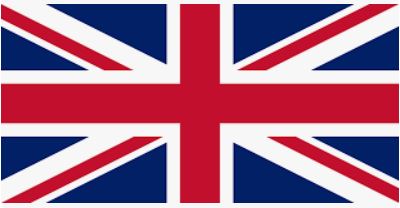
Parimutuel betting is a form of wagering where the exact odds of any selection are not known at the time of placing the bet. In this respect it differs from fixed odds betting – the most common form of wagering in the UK – where you know exactly what return you will get should your bet win. Instead, with parimutuel gambling your return depends on the overall amount staked on the event and the amount wagered on the winner.
It is commonly used in France, Australia and North America, although the Totepool bets offered by bookmakers in the UK are also an example of parimutuel betting which is also sometimes known as Tote betting (named after the machine which originally calculated the payouts, the totalisator).
Under such a system the payout is calculated by using the total amount wagered on the entire market, be it a horse race, football match, or anything else. From this, any applicable government taxes or levies are subtracted, as is the margin of the bookmaker or operator and any other further necessary charges. As an example; assuming that leaves exactly £100 and there was £10 staked on the winning pick, every £1 staked will return £10, giving standard fractional UK odds of 9/1 or decimal odds of 10.00.
Prior to an event starting the bookies usually give an indication of what they expect the odds to be and this is invariably expressed in the decimal format – that is to say the amount you would get back for every one unit of currency staked.
Parimutuel betting tends to be favoured where gambling is state operated or at least heavily regulated. This is because the company’s returns are not dependent on the outcome and it requires no skill setting odds, controlling liabilities or manipulating the odds. The bookmaker/operator simply takes a pre-determined cut and unless this is insufficient to cover their marketing and operational costs they are going to end up in the black, irrespective of how many heavily priced favourites Frankie Dettori – or anyone else – rides that day.
The exact bets offered by parimutuel betting vary from country to country but in the UK, Totepool offer a number of jackpot bets that can not only potentially produce huge payouts but also offer odds well beyond the genuine probability of a horse winning. This is possible when accumulator-style Tote bets rollover and the overall pool thus becomes so large that the odds are actually in favour of the punter.
Many people dislike parimutuel betting because they like to know what their return will be – the risk/reward ratio being a key factor in making a bet. Moreover, despite claims to the contrary, the odds can fall short of what you would get at a traditional bookmaker or betting exchange. That said, parimutuel betting remains hugely popular via the Totepool bets and is an interesting option that is popular with many people.
Parimutuel Betting: Example/Case Study

To better understand how all this works it might be better if we look at some examples. We will start with a very simple one. Make that very, very simple. This is not something that is realistic in terms of the market, certainly in the UK; or indeed the numbers, but it gives a good idea of the principle of the system.
Let us imagine a very even boxing match, where both fighters are believed to have a very similar chance of success. A fixed-odds bookie might price the fight as such:
- Favourite @ 4/5
- Slight outsider @ 11/10
- Draw @ 10/1
Bet with a normal bookie and you know that a £10 bet on the favourite will return £18 including your stake. Bet £10 with a pool-based betting site, however, and you will not know your return at that stage. Many bookies that use this system may give you some form of indication of expected returns but this is only a guide. Equally, you can be reasonably confident that returns will not vary all that much from what a fixed-odds site offers – though occasionally they might.
In our example let us imagine that the bookie takes exactly £100 in bets on the fight. From this they will deduct a set amount to cover all their expenses, including taxes, as well as some for them to generate a profit. The level of this will depend on several factors and is often published by the betting company so you know exactly what proportion of the overall stake, or pool, is paid out as winnings, or dividends. You can usually assume the take will be somewhere between around 15% and 30%.
Once again, to keep things simple, let us assume that the take here is 20%, leaving £80 in the pool to pay those who backed the winner. If we then work on the basis that £50 was wagered on the favourite, £40 on the underdog and £10 on the draw, we can see what payouts would result.
Once again, we will keep things simple and say that the favourite did the business and won the fight. So the post-take pool of £80 is to be shared among £50 of “stakers”. 80 divided by 50 gives us 1.6 and this is the return from a bet of £1 – in other words, a £1 bet returns £1.60 including the stake. As such, returning to a £10 bet on the favourite, returns would be £16, or some way shy of the £18 they would have got with a traditional betting site.
Had the underdog won instead, the equation would be 80/40, meaning a return of £2 per pound staked and effective odds of evens. In the unlikely event of a draw, it would have been 80/10, or £8, so odds of 7/1.
Low Returns?

Looking at our example one may well wonder why anyone would bother with parimutuel betting. These example returns are low across the board, the fixed odds of 4/5 beating the 3/5 on the favourite, 11/10 better than evens on the underdog, and 10/1 better than 7/1 for the draw. The reason for this is that the 20% take concerning the pool bet is far higher than the take with the fixed odds option.
The overround is the term used to describe (again, in simple terms) the bookie’s profit margin when it comes to the fixed odds system. This does not include their costs, tax or anything else, but just what profit the odds would typically deliver. The overround on the odds we used as our example is 12.27%. Translating the effective odds of the pool with a 20% deduction into fixed odds as above would give an overround of 25%.
However, this is not to say that fixed odds will always beat the returns of bets made with a parimutuel betting site. Let us look at another example, where we have altered both of the crucial factors: the overround with the fixed odds bookie and take of the parimutuel, and the split of the cash with the parimutuel betting site.
Returns Can Vary

Let us now look at a different market, though once again we will keep things simple. If Man City are hosting Liverpool in the Premier League we might see odds of:
- Man City at 1/2
- Liverpool at 4/1
- Draw at 5/2
These are quite weak odds, especially for such a big game, where bookies would tend to be more competitive. Even so, they are far from implausible and mean this market has an overround of 15.24%. Let us imagine that one decides to bet £10 on the draw at 5/2, meaning if the game ends in a stalemate a punter would receive £35 back in total (including the £10 stake).
An alternative bookmaker that operates as a parimutuel, attracts £100 of bets on the market, as before. However, instead of their take being 20%, let us instead imagine it is just 10%. Parimutuel bookmakers do not normally alter their cut; however, hypothetically, let’s say that for a big clash like this they have decided to offer a bigger payout in order to attract publicity.
Due to the odds and the likely perception of the game most people would have, we would expect to see the majority of the stakes going on City. Around a quarter might be wagered on the draw, with the rest going on the Reds.
However, anything can happen in terms of the split of the stakes. If, for whatever reason, this pool-based bookmaker happens to attract a lot of cash on the favourite, things might be rather different. It might be the case that the £100 wagered in total is split as such:
- 75% on City
- 15% on the draw
- 10% on Liverpool
If the game is far less one-sided than the oddsmakers predicted and ends in a thrilling 3-3 draw, anyone backing the stalemate in the pool would do very well. There would be £90 in the prize pool, of which £15 would be winning stakes. 90/15 = 6, so every pound staked on the draw would return £6, equating to odds of 5/1.
This is a fairly extreme example but serves to illustrate that there can be, and often are, times when a parimutuel betting site will deliver bigger odds and returns than a fixed odds one. Therein lies perhaps the biggest issue punters have with parimutuel betting – in general there is just no way of knowing before you make your bet just how good the rewards might be.
Parimutuel Betting Around the World
Parimutuel betting is far more common and normal in some countries than it is in others. Indeed, seven countries account for 80% of the global total according to the European Pari Mutuel Association (EPMA). That said, it is big business, with the EPMA claiming that 77% of all betting on horses is pool based.
As said above, it is often used in nations where gambling is more restricted and perhaps only available through state-controlled outlets. We will look at some of the nations where this is the case but first we will consider how parimutuel betting in this country exists.
UK – Tote Leads the Way
 The Tote can trace its roots back to the 1920s when none other than Sir Winston Churchill helped establish its forerunner. The aim then was to limit illegal gambling by offering an alternative, facilitating the generation of tax, and ensuring that money from gambling could be put back into the sport. This again shows how parimutuel betting is often linked to government-controlled betting.
The Tote can trace its roots back to the 1920s when none other than Sir Winston Churchill helped establish its forerunner. The aim then was to limit illegal gambling by offering an alternative, facilitating the generation of tax, and ensuring that money from gambling could be put back into the sport. This again shows how parimutuel betting is often linked to government-controlled betting.
Much has changed over the years but scrolling forward almost a full century, tote bets are still going today. There are two slightly different entities here; one, tote bets that are now available at a wide range of betting sites; and two, the tote site itself, which offers these bets, other parimutuel options too, and also some fixed odds bets.
Here we will focus on the core tote bets many of which are available up and down the land at racetracks, as well as through a whole host of bookmakers. In addition, we will also only talk about tote horse racing bets.
Note that not all tote bets will be available all the time at all outlets. However, the following are the core wagers:
- Win – a win bet is the simplest sort of wager and you are just betting on a horse to win its race, with payouts determined by the pool.
- Place – as above, but for the horse to finish in the places. Backing this and the win is an option to create a wager very much like a standard each-way bet
- Exacta and Trifecta – the equivalent of a forecast and a tricast respectively, with reverse and combination options also available.
- Placepot – the Placepot sees punters try to pick a horse to finish in the places in each of the first six races on a specific card. Even though you only need to land places, this pool can deliver some big prizes, especially at major meetings.
- Quadpot – as above but on four specific races from a particular card.
- Scoop6 – this is the bet that most punters turn to parimutuel betting for and it can offer some massive prize pools and wins. You must select the winner for six specified races, usually at the weekend or for a big meeting.
- Tote Jackpot – as above but usually available every day, though with a smaller potential payday (typically).
There are also a number of extra tote bets that may only be available directly through tote. These include options such as the Swinger, Quinella and Survivor, among others.
France and Europe
 If you have visited France you have probably seen outlets of the PMU. These small, simple shops, or even kiosks within other outlets, are the state-owned Pari Mutuel Urbain. Founded in 1930 the company is a little like the Tote, or at least was until Tote was privatised. They are the third-largest pool-betting company in the world and have over 13,000 outlets across France.
If you have visited France you have probably seen outlets of the PMU. These small, simple shops, or even kiosks within other outlets, are the state-owned Pari Mutuel Urbain. Founded in 1930 the company is a little like the Tote, or at least was until Tote was privatised. They are the third-largest pool-betting company in the world and have over 13,000 outlets across France.
They also have 87 partners around the world, in over 50 countries, and handle around €10bn in bets. The concept of parimutuel betting is big in many nations in Europe but is biggest in France. The PMU work with companies in both Belgium and Germany, as well as elsewhere, either running their pool betting operations or providing technology.
Parimutuel betting is very big in Sweden and also exists in Ireland. In all nations, both within and outside Europe, it is primarily offered on horse racing, though in nations such as France all bets made offline are pools ones.
Asia
 Horse racing is popular in Japan, Hong Kong and a number of other Asian countries, such as Singapore and to a lesser extent South Korea.
Horse racing is popular in Japan, Hong Kong and a number of other Asian countries, such as Singapore and to a lesser extent South Korea.
Here parimutuel betting is the norm, with authorities such as the Japan Racing Association and Hong Kong Jockey Club taking bets directly.
The types of wagers offered in all of these different nations vary but certainly bets such as win, place, exacta and trifecta are common (though they may of course go by a different name).
English-Speaking Nations
 Parimutuel betting is also very much the norm in the majority of developed, English-speaking nations. By this we mean that in the USA, Canada, Australia, New Zealand and South Africa, if you make a bet on horse racing, you will more than likely be using a pool system, especially if you are betting in person (rather than online).
Parimutuel betting is also very much the norm in the majority of developed, English-speaking nations. By this we mean that in the USA, Canada, Australia, New Zealand and South Africa, if you make a bet on horse racing, you will more than likely be using a pool system, especially if you are betting in person (rather than online).
Once again, all the usual markets will be available, with certain local specials and jackpot-style options also on offer. Companies such as Tabcorp in Australia, Woodbine in Canada, and Amtote and United Tote in the US are household names locally. For many punters, certainly traditionally speaking, these would be the go-to options for most bets.
This has changed in some of those nations as gambling has become less restricted and online betting has become either legal for the first time, less regulated or simply more widespread. Even so, the likes of Tabcorp, which was created by the state government of Victoria in 1961 and listed on the Aussie stock exchange in 1994, remain behemoths of the gambling industry locally.
